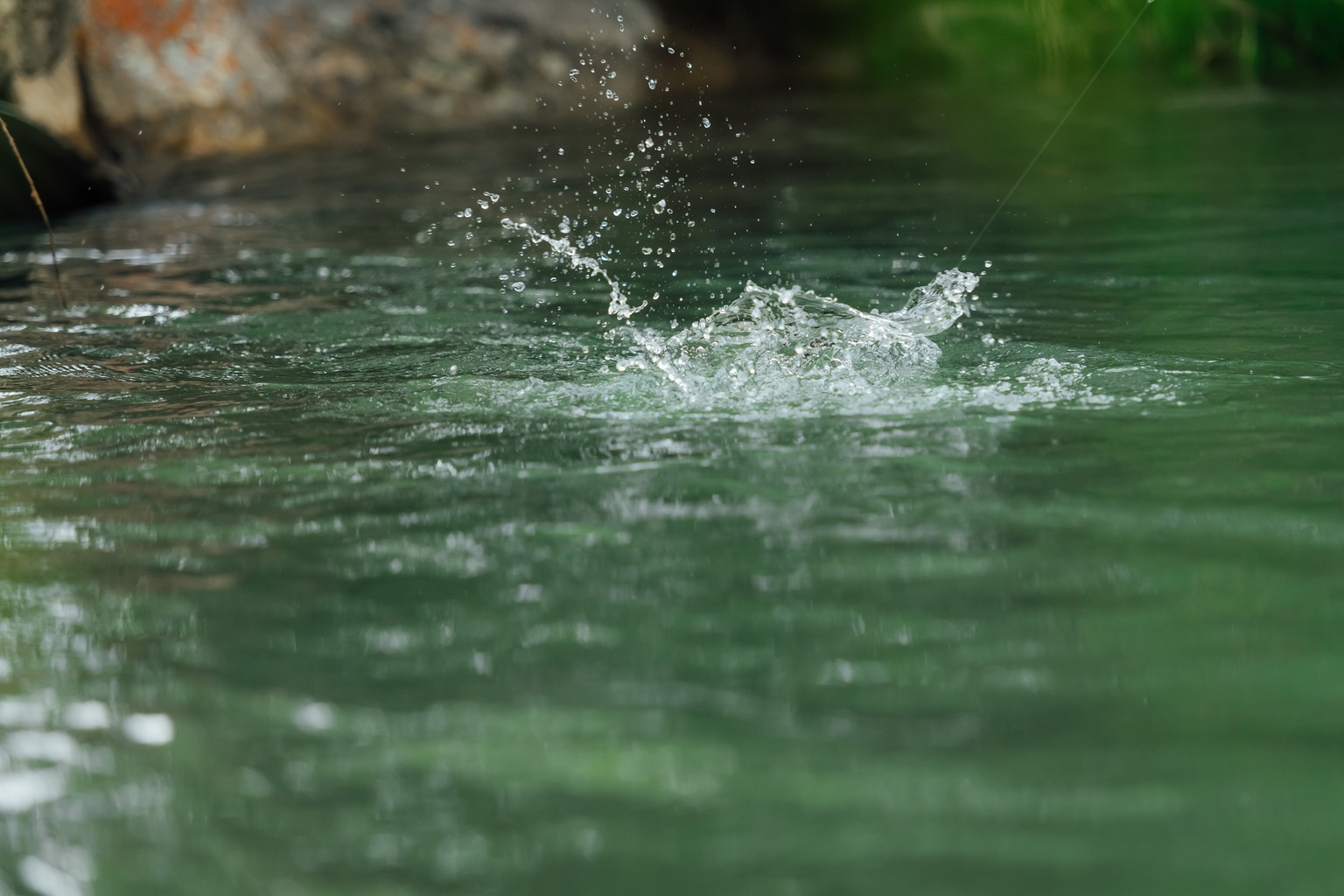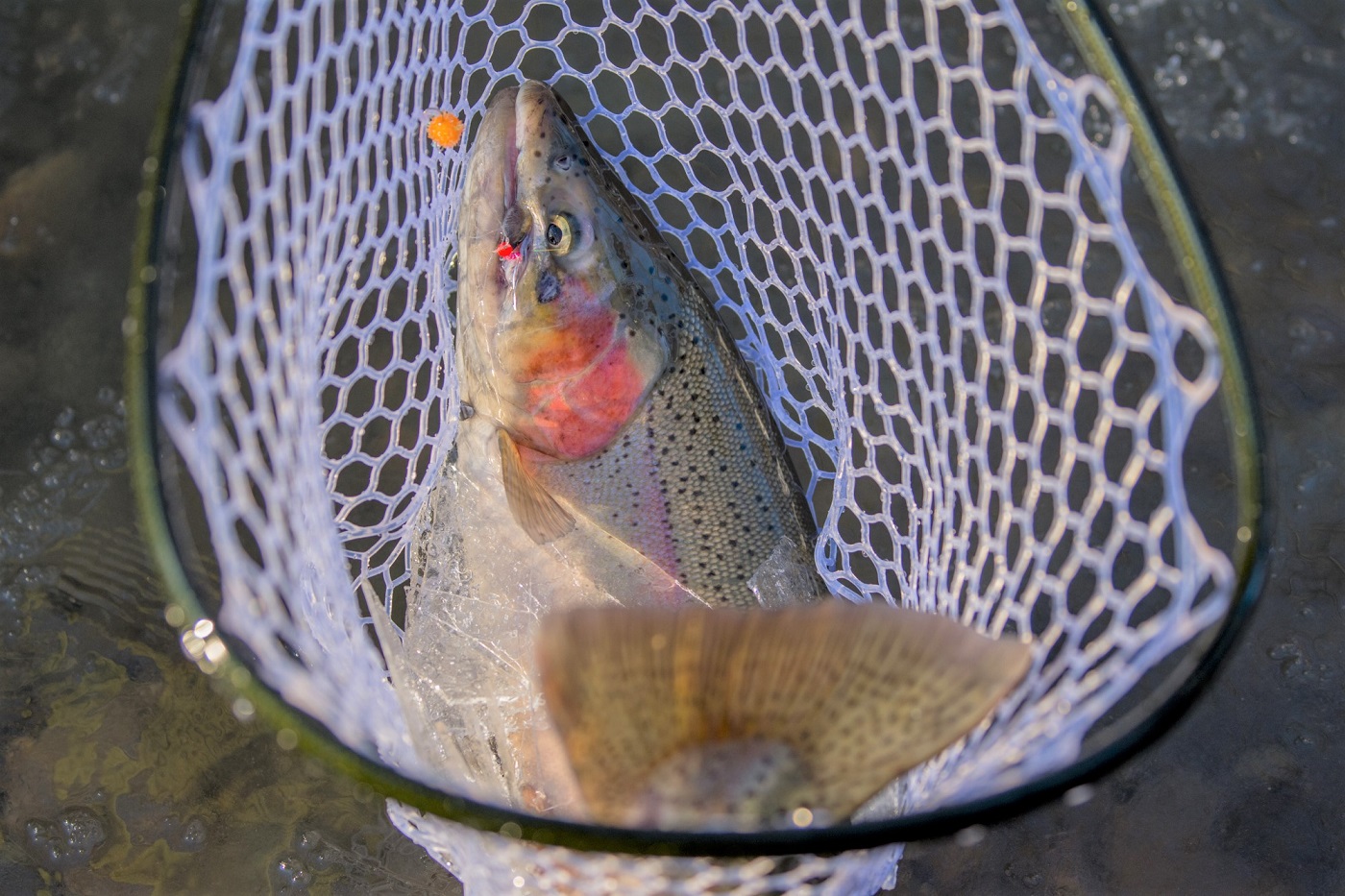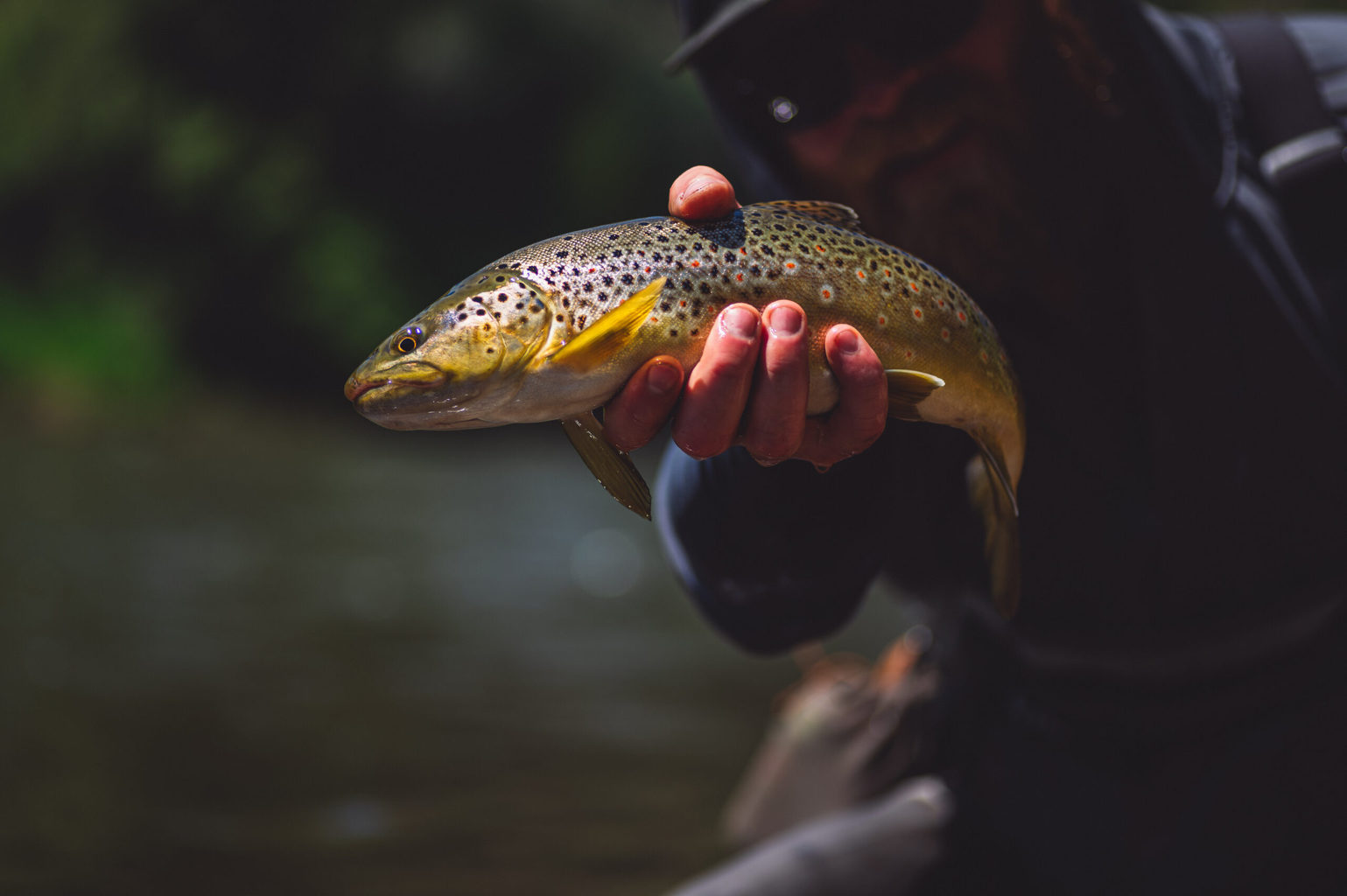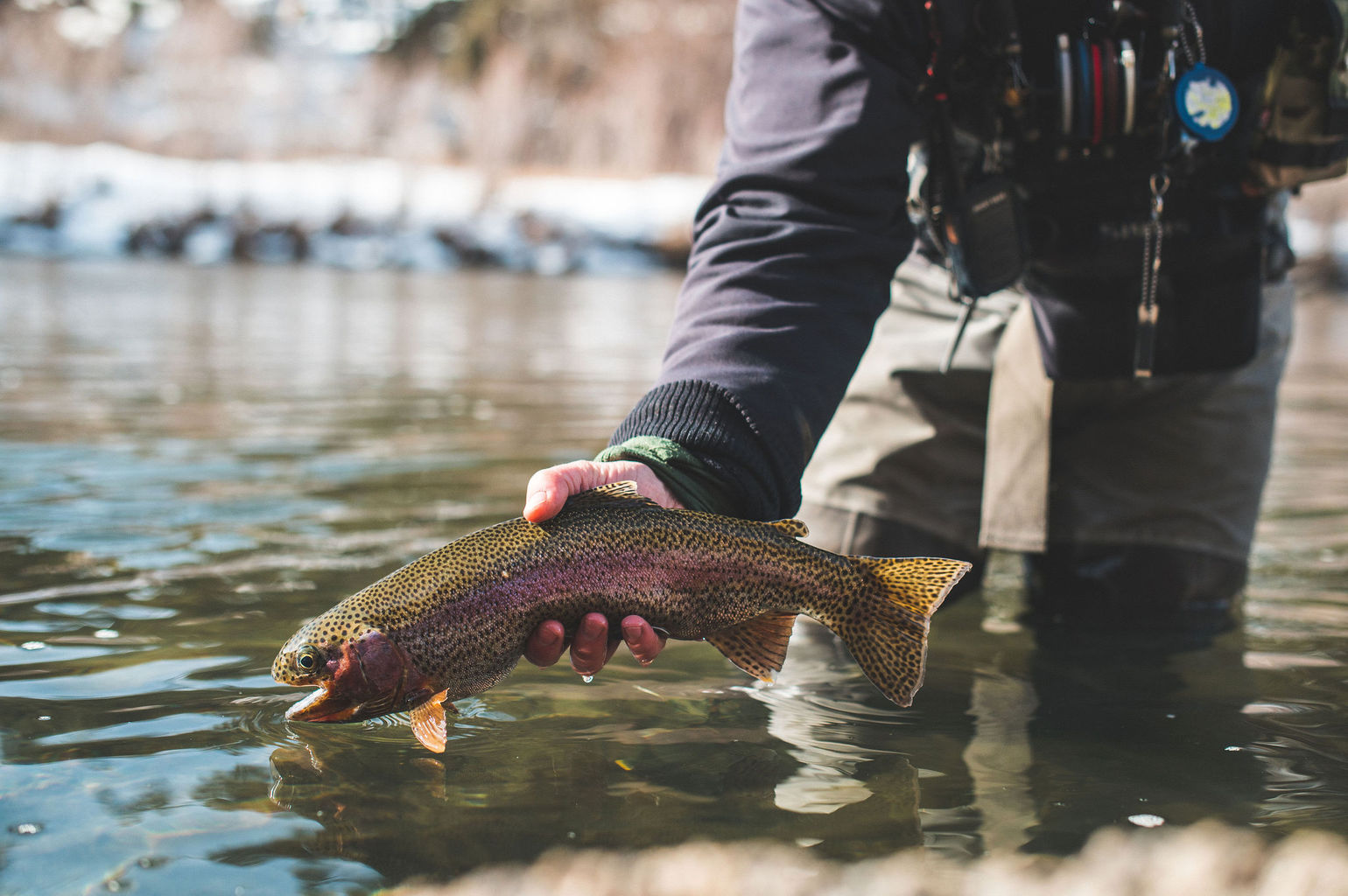Fly Fishing Divers And Popper Flies For Warm Water Bass
As the water warms up in the spring and summer, you can enjoy some of the most exciting action of the year as fish activity rises rapidly. There are few experiences in fishing more exciting than the explosion of a predatory fish, lurking in the murky waters, then breaking the surface to inhale an unsuspecting prey.
Fly anglers use poppers and divers to tempt trout, panfish, bass, and pike as they feed voraciously on baitfish and other prey on or near the surface during the warm weather months. You may be wondering what exactly is a popper or diver? And when do I use one or the other? Let’s examine each type of fly and discover what situations each one matches best.
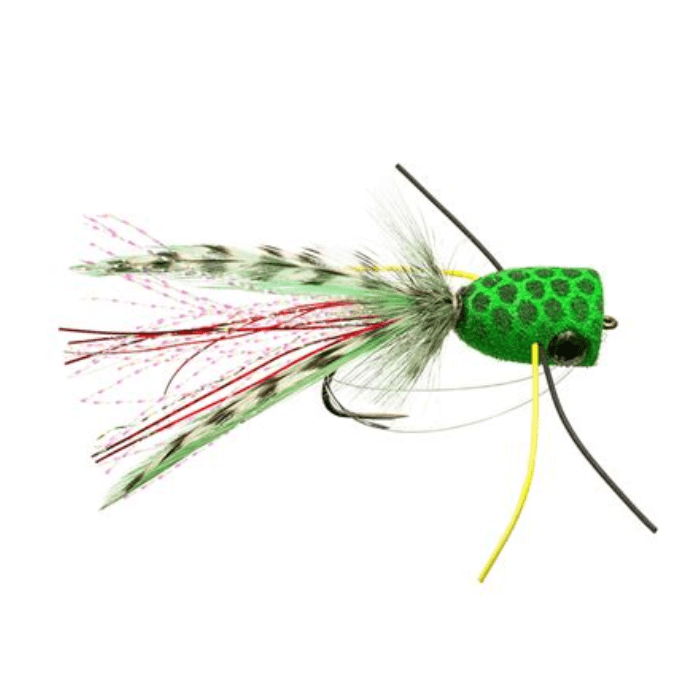
Poppers
The popper is one of the oldest lures that exists. Many anglers also think it is the most exciting fly to use. Poppers are tied with a compact head that is round or square in shape. The head has a concave or lipped cup shape which is designed to catch water as it is pulled across the surface, making a characteristic “pop” sound that gives the fly its name. The popper is exciting and productive, but it is not a versatile offering.
Poppers land with a noisy commotion on the cast, which gets the attention of aggressive fish. On the retrieve, the angler pulls a few inches of line causing the characteristic gurgling sound. Poppers are usually fished slowly, with a few pops followed by a still period. This pattern imitates prey such as a dying baitfish, a frog moving across the surface, or any other animal in peril on the top of the water. The popper tempts fish that are actively feeding but also provokes strikes from instinct or territoriality.
The popper is the best choice in certain circumstances. This fly type is most popular for largemouth bass and panfish. During the spring, these species often aggressively chase noisy flies on the surface as they feed on insects and small baitfish. A small popper is a perfect choice for bluegills feeding on beetles or caterpillars falling from overhangs or bass patrolling the shallows. Poppers work well in dark conditions such as first thing in the morning or as dusk turns to evening. The noisy presentation provokes strikes when sight feeding is not possible.
Poppers are also the ultimate choice when the goal is simply excitement! Nothing gets the heart racing like an explosive bass strike on a popper, with the entire fish leaping up from the surface in a spray of water.

Divers
Divers are a more subtle and versatile topwater option. A diver is a minnow-shaped fly with a convex head. The floating head is often made from light foam with a very small weight. When pulled, the diver slides underwater. The action imitates the erratic movements of wounded baitfish. The diver appeals to fish that are actively feeding on minnows or other small baitfish.
Divers are more versatile than poppers. They are perhaps the best choice of any fly to cover large areas of water. Many anglers use divers to scout out new bodies of water, since they can be cast long distances and retrieved rapidly. The diver can be retrieved in various ways, but it is common to simply strip long pulls of line consecutively while allowing a second for the diver to float in between. Some anglers compare the action and use of the diver as the fly fishing equivalent of the age-old in-line spinner lure. Both move quickly through the water, imitating a baitfish near, but below, the surface.
Divers are usually the best choice to match patterns when bait fish are schooling. Predatory fish stalk the schools, looking for a wobbly, erratic fish that is sick or injured. Additionally, we know that fish change patterns during the day. During warm weather, baitfish may seek cooler temperatures in a deeper area of creek channel. The diver will work in this circumstance, while poppers cannot be used.

Divers are the best choice for any conditions that make fish wary. The diver has a smooth and subtle movement with little sound. Therefore, they will not scare away the skittish fish like a noisy popper. These conditions include very clear water, shallow water, and high light and visibility conditions.
Divers work for all species and work great for bass. Bass can be more particular than other predatory fish and can either be scared off by a large or loud offering far more frequently. Loud, attention-seeking poppers can be counterproductive. However, the smooth and soft landing and retrieve of a diver will attract bass feeding on baitfish without lots of commotion.
One final advantage of the diver is the ability of the fly to pull through exposed cover better than a popper. The shape of the head allows a diver to move through moderate cover. You can work the diver through fish-attracting cover such as grasses, with the head pushing the grass out of the way.
Both the diver and the popper are excellent flies for the warming weather of spring and summer. The two styles have many similarities, and both are designed to attract actively feeding fish by imitating wounded prey. However, there are significant differences that usually make one or the other option a clear first choice.

Divers are versatile and can be used to work larger areas of water. Because they are soft and smooth, the divers work better in any condition that may make fish wary – which includes high visibility, clear water, or shallow water.
Poppers are the go-to fly for exciting top water splashing strikes. Select them when absolute thrilling fun is the top priority. Poppers also are the best choice in low visibility conditions or when fish are extremely aggressive.
Do not hesitate to stock up on a variety of sizes and colors of poppers and divers. By doing so, you will be ready for all the warm weather patterns.
Fly Fishing Made Easy 👍
Our Quarterly Fly Club ships 1,000’s of flies to anglers all across the United States. Receive curated fly assortments selected for the season with in-depth articles on how to fish them. Great for beginners to learn and for intermediates to discover new flies.




